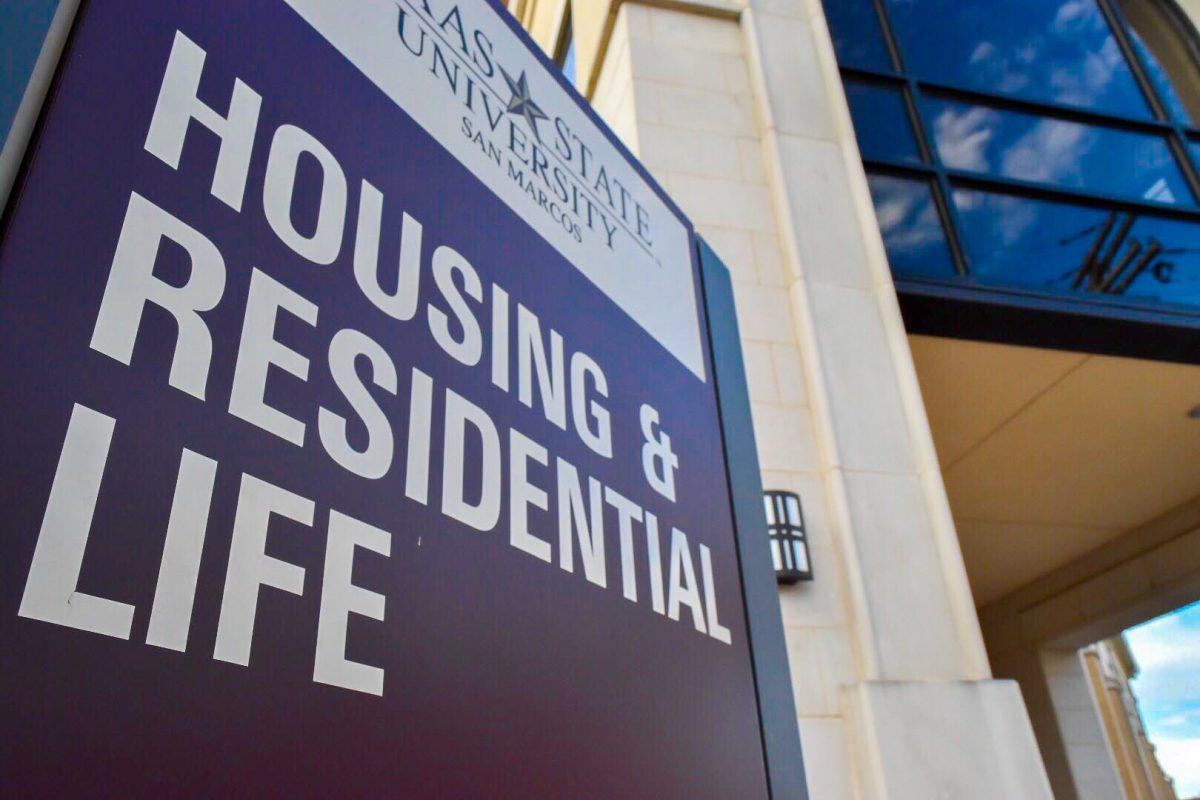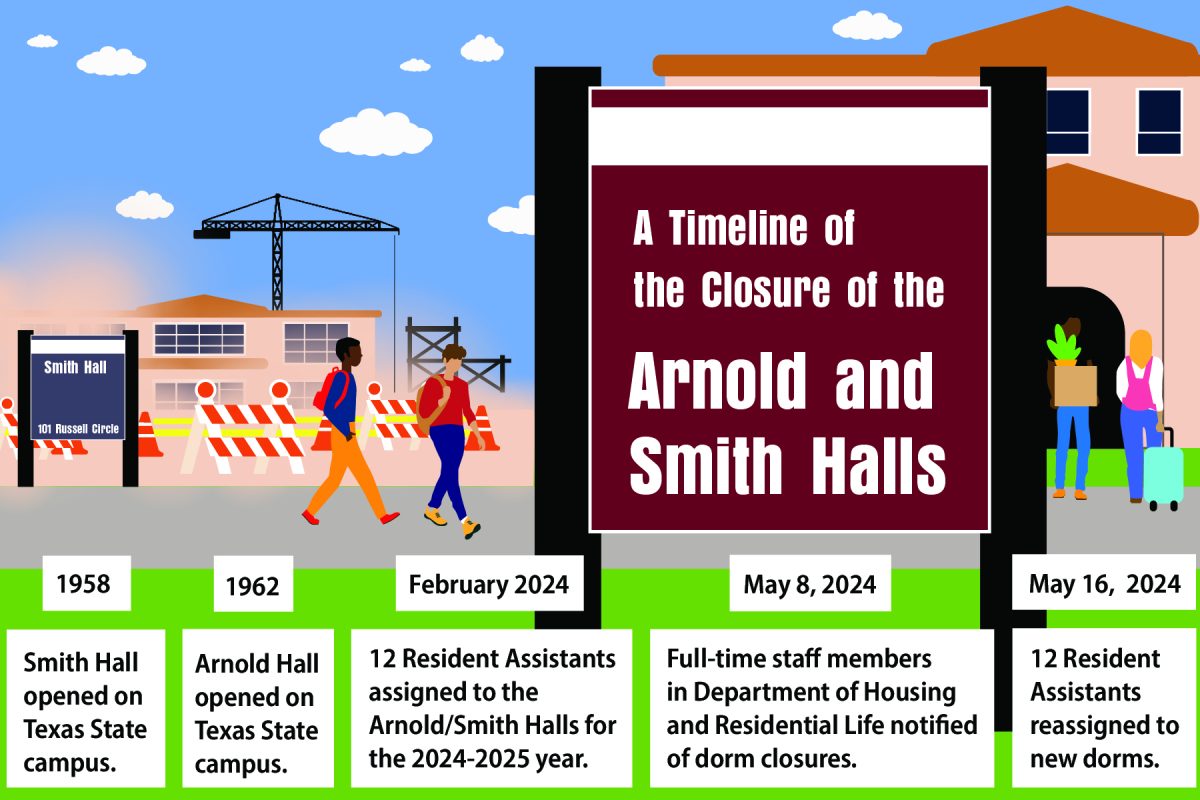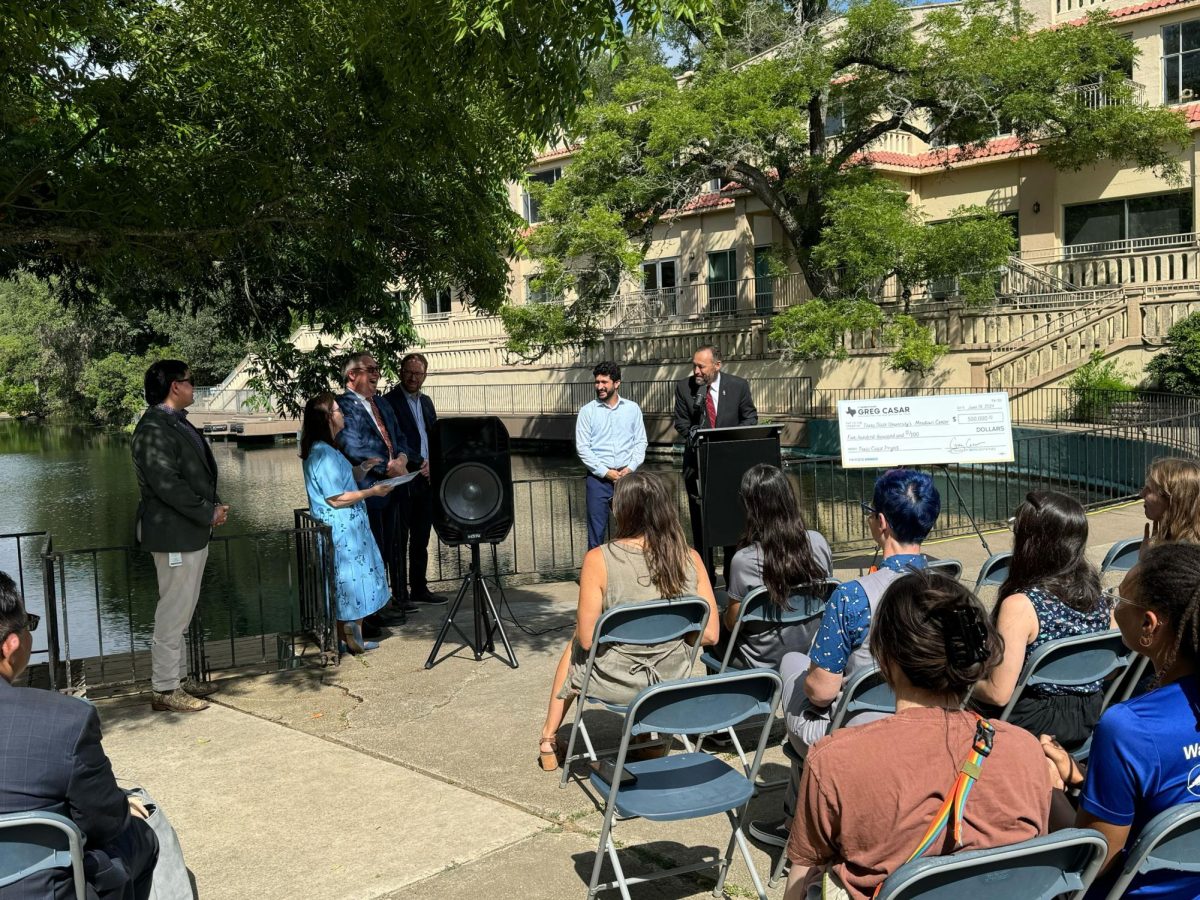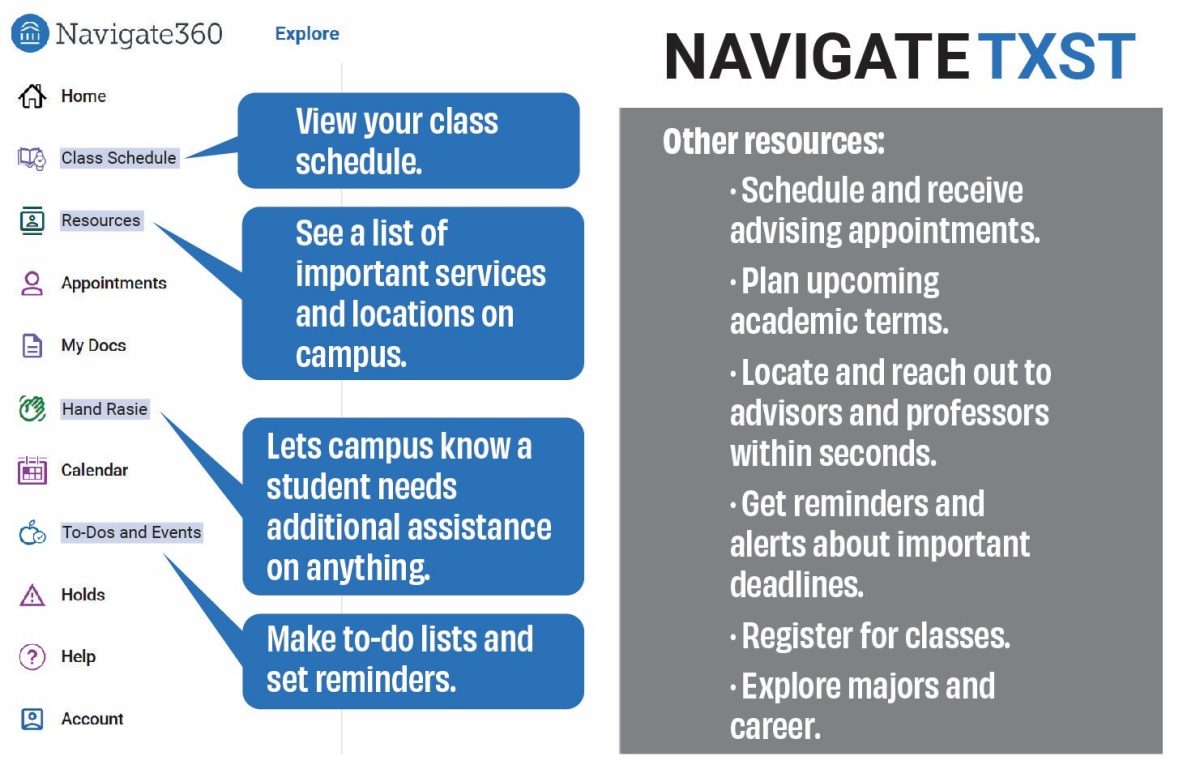Editor’s Note: Names and other characteristics that would otherwise identify current resident assistants have been withheld as to not jeopardize the employment of any RA.
With a policy telling resident assistants to keep quiet, Texas State has reinforced its designation as one of the worst universities in the country for free speech.
Following resident assistants’ hesitancies toward interviews, The University Star discovered a Department of Housing and Residential Life policy preventing RAs from speaking to media, including student journalists. Herbert Jones, associate director for DHRL, oversees Residential Life and Education and said unless approved by the director’s office, RAs are not allowed to speak to media.
“We want to make sure that the information is accurate. We want to make sure the appropriate person is speaking on our behalf,” Jones said. “We would ask if they would refer [reporters] to the director’s office. What is their opinion based off of? Is it based off of hearsay? Is it based off what they think is happening? They’re giving you an opinion as a media that you’re going to then take and run with.”
The policy comes from a concept called the “Five P’s,” which is communicated to RAs through a PowerPoint presentation slide shown during training. The presentation is considered a governing document for resident assistants.
Covered in a single slide, the “Five P’s” state that anytime police, paramedics, press, parents or property damage are in a residence hall, RAs should immediately contact their supervisor. This slide is the only time the media is mentioned in the presentation, and it does not include corresponding punishments.
In the 2015-16 RA manual, the most recent one, the policy is more explicit:
“There may be times when you are asked by a member of the press (including campus media) to comment on or be interviewed regarding something that happens either in your hall or on campus. At no point should you comment or grant and interview to the media on an event, policy, procedure or incident that happens on campus without prior approval of your Residence Director. This policy is designed to keep you from misrepresenting your hall, the department and the university because you were misquoted or because you do not know or understand all aspects of a particular issue.”
Jones said the manual was the guiding document for training resident assistants but it currently is under review by the department. Now, the policies are taught via the PowerPoint presentation.
Frank LoMonte is the director of the Brechner Center for Freedom of Information at the University of Florida and is a former executive director of the Student Press Law Center.
“Stating your personal opinion about your working conditions is a classic example of constitutionally protected speech,” LoMonte said. “The most that a government employer can do is a narrow confidentiality policy that says, for example, you can’t share private medical information or private academic information that is shared with you in confidence in your RA role. That’s legally permissible. But what’s definitely not legally permissible is a blanket ‘no unapproved interviews’ policy.
Attorney for Students Shannon Fitzgerald said because resident assistants are employees, the university likely has a greater authority to require approval for interviews.
“An RA isn’t just a student, they’re an employee, and employees’ rights are more constricted because of their agreement as an employee to follow certain guidelines,” Fitzgerald said.
According to LoMonte, students do not forfeit First Amendment rights when they agree to work for DHRL or any other department on campus.
“The fact that RAs are students first and employees second only makes the university’s argument weaker and the student’s argument stronger,” LoMonte said. “It is really not 100 percent clear that RAs qualify as “employees” anyway in the eyes of the law.”
Adam Steinbaugh is the director of the Individual Rights Defense Program for the Foundation for Individual Rights in Education organization. Steinbaugh sided with LoMonte and agreed the only limitation is that RAs cannot represent the department without approval.
Steinbaugh recommends the university clarify the policy to be more specific, as students have broad First Amendment protections and there can be a chilling effect from vague policies.
“I think that the university should make clear students speaking in their private capacity on matters of public concern is protected speech,” Steinbaugh said. “I think the university should generally be deferential to that. To say, ‘where the line might not always be clear, we are going to defer to student’s rights.’”
The committee tasked with rewriting the policies has a tentative completion date of spring 2019. Jones said the changes will clarify the media policy and more. At this time, it’s unclear exactly what that clarification will look like, but Jones did not say the department will weaken the policy.
“We are working on an RA addendum,” Jones said. “[Resident assistants] will all review and initial and sign and at the time they can make the decision whether they agree to those (rules) or they choose this is not for them.”
LoMonte said despite employee signatures, the policy would still be unconstitutional.
“Even if there is a signed document, that doesn’t override the Constitution,” LoMonte said. “The Supreme Court decided in a 2013 case that the government cannot force you to contract away all of your free-speech rights as a condition to receiving a government benefit or a government privilege.”
Jones feels DHRL’s media policy is in compliance with university code and deferred to Texas State’s general counsel on the issue of legality.
The University Star created and distributed a survey to the 197 resident assistants listed on Texas State’s website. Questions included whether the RAs felt they would be reprimanded for giving a quote to the press and how they would rate their satisfaction as an employee.
Fifty-nine RAs responded.
Eighty-three percent said they would be reprimanded for giving a quote to the press. Forty percent rated their satisfaction as a three out of five, with one as “I hate it” and five as “I love it.” Thirty-two percent rated it as a one or two out of five. In an additional comments portion, respondents gave criticisms of DHRL and the media policies.
“For the quote, as long as we don’t say anything bad about DHRL I think it would be fine,” one respondent said.
Another respondent criticized general confusion within DHRL and stated: “there are far too many inconsistencies in DHRL.”
When this poll was issued, several Resident Directors, the immediate supervisor for RAs, told RAs they would need prior approval before completing the survey.
Adam Steinbaugh said this was an inappropriate response to the survey.
“A student responding how they feel about being an RA is obviously not speaking on behalf of the university, so they are speaking in their private capacity,” Steinbaugh said. “Just because they happen to be an RA does not mean they are speaking as an RA.”
In February, FIRE ranked Texas State as one of the worst campuses for free speech. Steinbaugh said this policy does not help Texas State’s standings on that list.
One RA chose not to follow DHRL’s direction and responded to the survey with criticisms of the department’s dissuasion:
“I don’t understand why DHRL is telling us why we shouldn’t fill this out. We are students talking to other students. It’s just our opinion of how we feel as a student working for the campus/department. The University Star is a campus newspaper for THE CAMPUS! Honestly, I don’t want to lose the job just for giving my thoughts. I do like the job at times…”
Jones said there is no blanket consequence for those who talk to the media and the consequences will vary on a case-by-case basis. Jones also said he hopes RAs communicate concerns to their supervisors.
“I would want our student staff to feel empowered, so that if you’re one of our RAs and you’ve been approached by the media, and you feel very passionate about a particular topic based off of your experience, then for me that’s a conversation that they will then have with us,” Jones said.
LoMonte recommends RAs seek legal counsel to challenge this policy.
“If an RA is unhappy with being restrained from speaking to the media, I’d recommend reaching out to a legal-aid organization like the Student Press Law Center or the ACLU and ask for pro-bono legal representation,” LoMonte said. “The law is so clear that it should not take going to court to get policies of this kind corrected.”
Housing department silences RAs with unconstitutional policy
November 28, 2018
With 38,661 students enrolled at Texas State fall 2018, approximately only 7,000 lived on campus, according to a Root Policy Research report on San Marcos housing.
Donate to The University Star
Your donation will support the student journalists of Texas State University. Your contribution will allow us to purchase equipment and cover our annual website hosting costs.

























